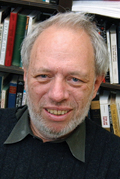


About the Author
Fairleigh Dickinson University Professor of Anthropology and Law David Rosen received his PhD in anthropology from the University of Illinois and his law degree from Pace University Law School. He taught at the University of Maine, American University and Ben Gurion University of the Negev in Israel before coming to Fairleigh Dickinson University in 1981. His courses include Cultural Anthropology, The Anthropology of Law, Family Law and American Constitutional Law.
Rosen’s research interests have focused on the relationship between law and culture. As an anthropologist he carried out research among the Mukugodo people of Kenya and among the Kono of eastern Sierra Leone. Sierra Leone’s Kono region was the heart of the country’s diamond-mining industry and later became the center of rebel activity in its civil war. There, in the prewar years, Rosen encountered the kind of government-sponsored, organized-youth violence that later became the hallmark of the civil war in Sierra Leone.
Rosen’s interest in child soldiers grew when he realized that the “headline wars” in the news media about child soldiers did not fit his understanding of the situation. He began to develop his book at a summer seminar on the ethics of global governance sponsored by the National Endowment for the Humanities in 2001 and organized by the Carnegie Council for Ethics and International Affairs. As an anthropologist and a lawyer, Rosen is particularly interested in how the issue of child soldiers is being used to shape the legal definition of childhood across the globe.
Over the last few years, he has been a senior fellow and participant in the ongoing seminar “Rethinking Childhood in the 21st Century,” sponsored by the Rutgers University Center for Children and Childhood Studies. In addition to his interest in child soldiers, Rosen focuses on human rights issues and recently filed a brief with the United States Supreme Court in the case of White v. South Carolina in support of the idea of body tattooing as an expressive art form protected by the First Amendment to the Constitution.
FDU Magazine Home | Table of Contents | FDU Home | Alumni Home | Comments
©Copyright 2005 Fairleigh Dickinson University. All rights reserved.
For a print copy of FDU Magazine, featuring this and other stories, contact Rebecca Maxon, editor,
201-692-7024 or maxon@fdu.edu.